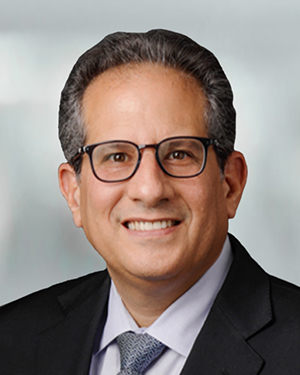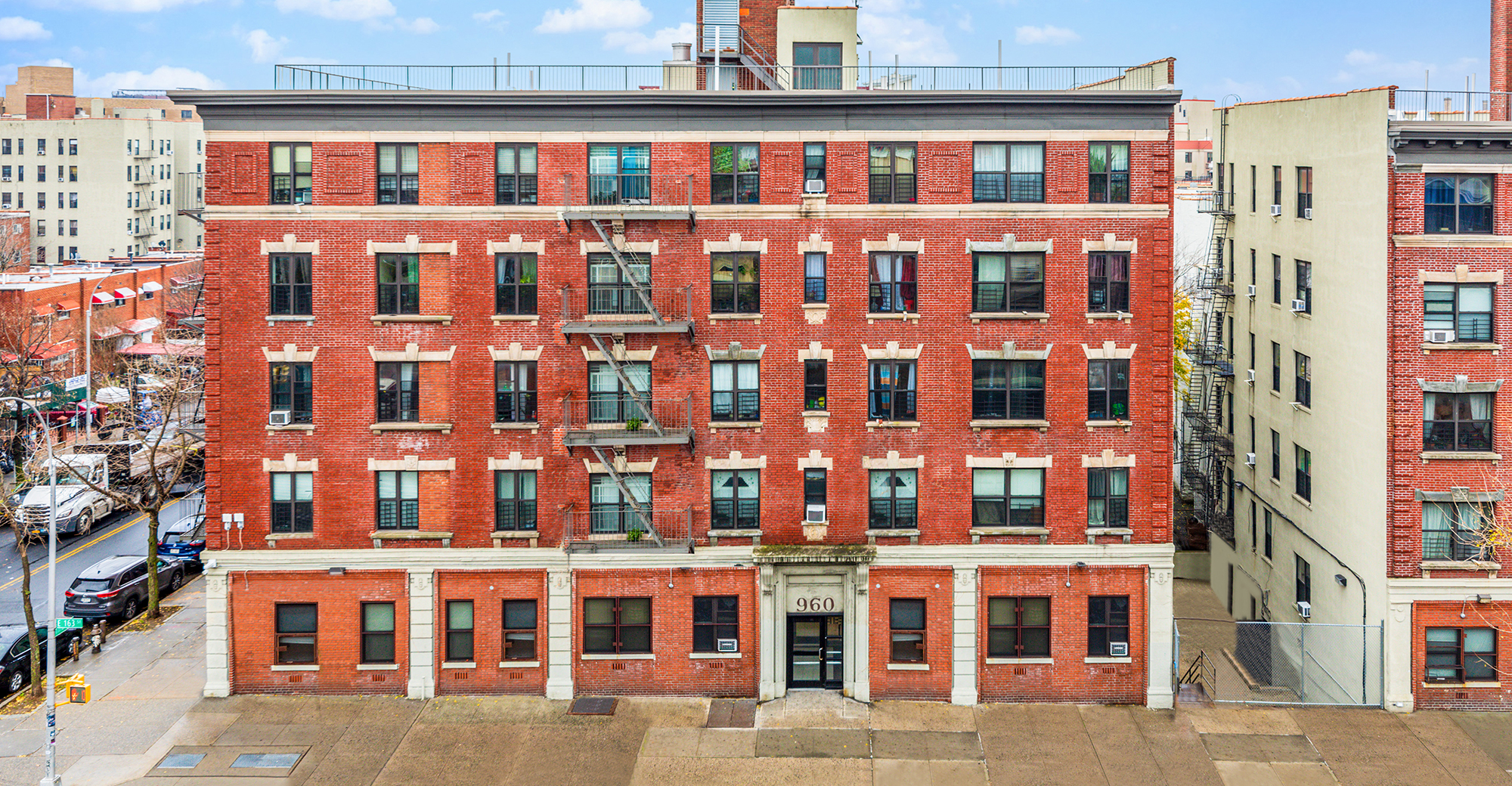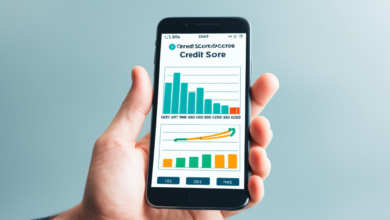Why Multifamily Investor Fairstead Is Betting on Proptech and ESG
When Jeffrey Goldberg made his first multifamily investment nearly 25 years ago, he emptied his bank account. He couldn’t even pay his own rent until he received his next paycheck.
Fortunately, Goldberg’s risky move paid off—that $35,000 investment turned into more than $1 million. Over the next two decades, as he ventured beyond market rate housing into affordable and Section 8 housing with acquisitions in the Bronx, Inwood and Washington Heights neighborhoods of New York City, deals became more expensive, investors had more money and checks became much bigger.
In 2014, with a successful track record of developing, owning and operating multifamily buildings throughout New York City, Goldberg founded Fairstead with the goal of investing in affordable and market rate housing across the United States.
Since then, with Goldberg at the helm as CEO, Fairstead has evolved into a vertically integrated real estate company committed to sustainable development and the creation and preservation of high-quality housing. Since its founding, the company has acquired more than $4 billion worth of multifamily properties. It has offices in New York, Maryland and South Carolina, manages more than 90 communities in 18 states and impacts roughly 25,000 people.
Earlier this year, Fairstead made its first acquisition in Philadelphia: 1500 Locust, a 45-story, mixed-use multifamily building in the famous Rittenhouse Square submarket. The property, which consists of 612 multifamily units, 7,770 sq. ft. of street-level retail and a 398-space parking garage, sold for $233 million—the largest single-asset sale in the history of Philadelphia’s multifamily market.
The record-breaking deal followed another massive investment: Fairstead, in partnership with Invesco Real Estate, acquired 1,904 affordable units across 48 buildings and 2.3 million sq. ft. in the Bronx. The deal was the largest of its kind in New York City by both portfolio and investment size in 2021.
The firm is also partnering with Mill Creek Residential and The Communities Group to redevelop the Samuel Madden Homes in Old Town Alexandria, Va., near the new Amazon HQ2. Fairstead plans to create a sustainable mixed-use community with affordable, workforce and market-rate housing.
Other recent acquisitions include Sable Palms Apartments, a 200-unit affordable housing community in Jacksonville, Fla. and Gateway, a 160-unit affordable housing community in Lake Jackson, Texas.
We sat down with Goldberg to discuss the firm’s goals and its investment strategy.
This Q&A has been edited for length, style and clarity.
WMRE: What is Fairstead’s investment strategy?

By re-envisioning, reconfiguring and renovating the properties we acquire, we maximize their value. And in doing so, we also improve the quality of housing that we’re providing to our residents.
We’re a vertically integrated firm, so when we identify a property that we want to acquire, we have the in-house expertise to handle its entire lifecycle, including construction, property management and asset management. We think that gives our investors better returns and gives our residents a better experience. It also allows for better risk management because we’re not relying on a third party to perform these functions, and there are no conflicts of interest.
To date, all our investments have been acquisitions of existing properties. But now we have
five deals that are moving into the space of ground-up development, including a complete gut renovation of a landmark building on 79th Street in Manhattan. The building had been an SRO (single room occupancy) before the previous owners turned it into an illegal hotel.
We spent a lot of time figuring out the highest and best use for it and decided to turn it into seniors affordable housing. It’s the first hotel in the city to be converted to affordable housing, and we’re just about to finish it.
WMRE: What was Fairstead’s original vision and mission? Has that changed over time?
Jeffrey Goldberg: I wouldn’t say that it’s changed so much as that it has evolved. We have always viewed ourselves as stewards of property and stewards of capital.
When we launched Fairstead in 2014, it was with the idea and expectation of building a better real estate organization—one that invested in affordable and market rate housing and was national in scope. We also wanted our organization to be people-centric because when you invest in your people and bring on a quality staff, you can achieve great things.
Based on past successes, we’re fortunate that we can take a longer-term view and focus on more than just profit. We can focus on making money, yes, but we can also focus on ESG and invest in people and think about our community impact. Training and development is a huge priority for us internally, along with focusing on residents and their quality of life.
If you went into one of our buildings blindfolded, I don’t think you’d be able to determine if it’s affordable or market rate. We’re passionate about making sure the residents in our affordable units feel pride in where they live. We’re not giving them a second-class experience.
WMRE: What markets does Fairstead target?
Jeffrey Goldberg: Rather than targeting markets, I’d say that we target assets. It’s highly unlikely that we’re going to buy a well-performing asset that doesn’t need to be improved. We have properties in 18 states, and if we own an affordable asset in a particular state, we’ll do a market rate deal there, or vice versa, as long as we have some connection.
WMRE: What type of investors does Fairstead target? Do you anticipate your investor base will change in the near future?
Jeffrey Goldberg: When we decided to start Fairstead, an equity partner that I had a prior relationship with committed the initial capital to build the organization. That equity gave us the ability to build out our infrastructure and to invest in people, which we would not have been able to afford otherwise.
It also allowed us to be aggressive when buying properties and to be very nimble. When we found a property we liked, we could go to contract on it, and we could close with our own money. We didn’t have to raise money on a deal-by-deal basis, though we always had the ability to raise third-party capital from high-net-worth individuals and families.
We also have institutional investors that we enjoy doing deals with. We’ve partnered with institutions on both affordable and market rate deals.
I think they like that we look at things holistically and think of all the possible ways that we can reduce expenses and increase revenue. And they like the expertise we bring to a deal. They recognize that our team has tremendous capabilities. For example, our energy and sustainability group is one of the largest among our industry peer group.
WMRE: How does Fairstead raise equity and attract new investors? What kind of investor outreach do you conduct?
Jeffrey Goldberg: Track record is the number one thing. You do good deals, and people hear about them and want to invest. That is the single biggest driver.
One big change for us that occurred in the past year is that we brought on a head of capital markets named Tricia Yarger. She was at Citi Community Capital for more than a decade, and she was responsible for originating and structuring of debt for affordable multifamily.
Prior to Tricia joining, we’d find a deal and reach out to various institutional investors and get an idea if they liked it. Sometimes we’d use a broker to help us find equity. But now that she’s with us, we’re institutionalizing the capital raising process. She makes sure that we’re finding the right debt and equity for our deals, and she’s also heavily involved in reporting for our existing investments.
In the future, one of our objectives is to launch a fund. We think a fund would allow us to have more decision-making authority regarding investments.
WMRE: What have been the biggest challenges you’ve faced in terms of raising equity?
Jeffrey Goldberg: Because of the relationships that I [and the rest of the Fairstead team] built with investors prior to launching the company, it hasn’t been that hard to raise equity. The same equity partner that provided the initial capital to launch Fairstead committed another $500 million in equity last fall. This investor is very private, so I can’t disclose any details other than to say that we are using that capital to expand our portfolio and to invest in proptech.
WMRE: Can you tell us more about ESG at Fairstead, specifically sustainability?
Jeffrey Goldberg: We added energy and sustainability to our ethos many years ago when we brought on Mick Gilbert as the director of energy and sustainability in 2015. Hiring Mick was smart business because it was important for us to figure out how to reduce our expenses, and one of the biggest expenses was utilities.
Mick’s passion wasn’t limited to the business side of sustainability though. He did a very good job expressing his passion for bettering the planet to our leadership team, and at the same time, ESG became a huge focal point for investors. We started hearing more and more about ESG investing, and as we educated ourselves, we realized that ESG was a pillar of Fairstead, but we had never put a name to it before.
Over the past year, we’ve beefed up our ESG efforts by creating an ESG task force and expanding our sustainability group to nine people. We have people who are constantly looking for new technologies to help us be more sustainable, including EV charging stations and solar projects. We also have people whose job is to exclusively look for energy rebates, either in cash or in services.
We’ll be self-reporting on ESG for the first time this year, and we will continue to push forward and do better. A lot of people see ESG as either you do or you don’t. But it’s not really. It’s more like levels of ESG. People aren’t as educated about it as they could be, and there are more things that everyone can do (and do more of), and that includes us.
WMRE: What is the range of returns that you expect on your investments?
Jeffrey Goldberg: We target mid-teens IRRs for typical value-add investments and 20 percent plus IRRs for higher-risk investments. The returns are at the deal-level.
WMRE: What is your average hold period? Does it range from deal to deal or is it standard?
Jeffrey Goldberg: Every deal is unique. We go in with a long-term mindset and seize smart opportunities where we can unlock value.
WMRE: What role does technology play at Fairstead, specifically as it relates to communicating with investors, raising money, managing your properties and sourcing acquisitions?
Jeffrey Goldberg: We are committed to making sure that affordable housing benefits from advancements in technology and the industry. For years, we have been piloting innovative tech solutions to make our buildings more sustainable, and now we are getting into proptech investing. Aki Karja recently joined our team as our first director of proptech. He’s a veteran founder, investor and advisor to startups.
There has been very little innovation for affordable housing communities who are the most in need. Companies are underfunded, even though their impact could be huge. We are focused on investing in and piloting technologies in affordable housing to improve the lives of our residents and communities. We have the capital to invest, and we use our portfolio to bring the new technologies to life.
We have deployed smart building monitoring systems that have detected leaks before they become floods, tracking software to manage our COVID safety protocols for construction sites, and smart boilers and thermostats to keep our buildings comfortable and sustainable.
WMRE: What differentiates Fairstead from other investment firms?
Jeffrey Goldberg: Our people are a big differentiator. We have such a strong team that we can do more complicated transactions. We’re working on a number of extremely complicated deals right now. These are not your cookie-cutter deals. They require public-private partnerships with the communities we’re in. Those partnerships not only require a good reputation, but also people who have relationships at those levels, and a commitment from us to deliver.
Another differentiator is that we’re very nimble. We have dedicated capital, which allows us to move very quickly and put up large deposits. In the affordable space, that’s a huge differentiator because a lot of affordable buyers put down small deposits, and the deals are contingent on getting a bunch of approvals. We move quickly and take on that risk. We do that in the market rate space as well, but large depositions and short timetables are fairly normal there.
WMRE: The multifamily sector is one of the hottest and most competitive asset classes today. How is Fairstead facing its competition and coming out on top?
Jeffrey Goldberg: We have been particularly successful in buying portfolio deals because of the $500 million equity commitment that we received. We can write larger checks. For some deals, we tie them up by ourselves and then bring in an institutional partner. And for other deals we don’t bring in an institutional partner. By focusing on portfolio deals, we’re playing to our strengths. Portfolio deals are more difficult … more complex, and our team is strong enough to handle them.
WMRE: What plans do you have for Fairstead in 2022?
Jeffrey Goldberg: This year is shaping up to be our biggest year of growth. We have $6 billion in assets and identified pipeline, and an additional $2 billion and 8,500 apartments on the horizon. We are also planning to open new offices.
Our big new focus this year is proptech investing. We are using a portion of the $500 million equity commitment I mentioned earlier to invest in and deploy new technologies to make our buildings more sustainable and improve the lives of our residents.
WMRE: What is the biggest success Fairstead has experienced? What is the biggest failure?
Jeffrey Goldberg: I think attracting top talent and fostering a culture of innovation and entrepreneurship and purpose is our biggest success.
One of our missteps is that we waited too long to build out property management and develop asset management capabilities. We should have done that at the same time that we started our development and construction group.






